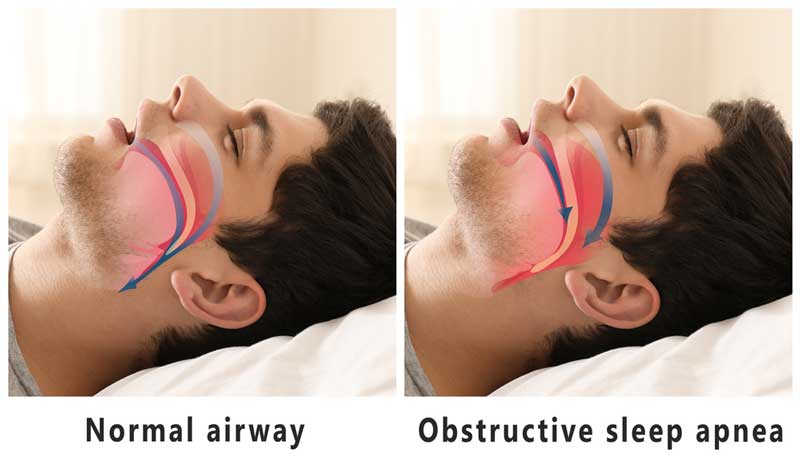
Sleep Apnea is something that most who suffer from are unaware that they have it. This is because the effects of sleep apnea often occur while they are asleep. To better understand what sleep apnea is and how it functions it would be beneficial if you reviewed the factors below that make you more at risk for developing it:
If You Are Overweight
It has been proven that if you are overweight you are more likely to develop sleep apnea. This is because there tend to be more restriction around the neck which can cause some obstruction to your airway. While you sleep if there is restriction to your airway this can cause you to have issues breathing properly while you sleep. One of the most common indications that you may not be breathing well while you sleep would be snoring in your sleep. Sleep apnea can be detrimental to your health because it causes you to have brief moments during your sleep where you are not breathing.
If You Are A Smoker
Smoking can be very detrimental to your health and it can cause you to develop many different health problems. Sleep Apnea is three times more likely to affect those who smoke as opposed to non-smokers. This is because when you smoke it increases fluid retention and the risk of inflammation in your airways. To reduce your chances of developing sleep apnea it would be beneficial to not smoke or if you do then to quit smoking.
Additional Risk Factors
There are plenty of other factors that increase your chances of having sleep apnea and they include:
- Being a male
- Being middle-aged or an older adult
- Having a family history of sleep apnea
- Being born with enlarged tonsils or a narrow throat
- Having chronic nasal congestion
- Using tranquilizers, sedatives or alcohol frequently
- Experiencing a stroke in the past
- Using opioid medications
Schedule Your Sleep Apnea Consultation
If you feel as though you may be suffering from sleep apnea then it would be very beneficial if you reached out to our office to schedule your sleep apnea consultation. Doing so would allow our doctor to examine you and provide you with a mouth guard, or c-pap machine to correct your sleep apnea.

